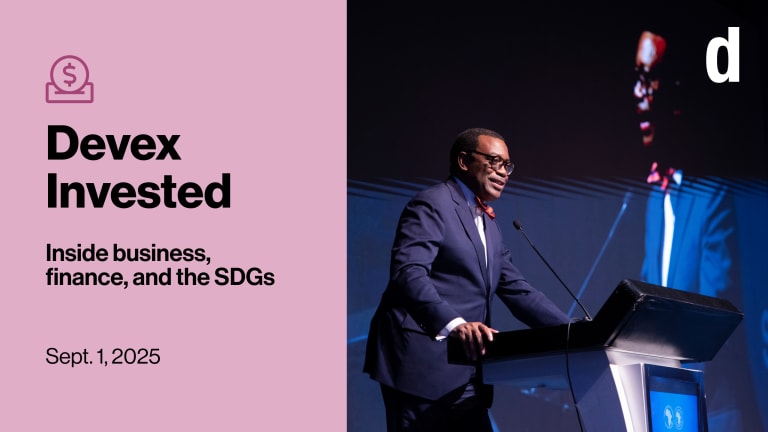The microfinance industry is evolving and traditional microfinance institutions are searching for new ways to remain relevant as telecommunications operators, payment companies and other new industry competitors take on the business of spreading credit to the world’s poor.
So what does the future look like for microfinance and what does it mean for the rest of the global development community?
Smartphones, credit scoring, new agent networks and big data could make microfinance professionals even more productive in years to come, according to Rupert Scofield, president and chief executive officer of FINCA International — one of the world’s most prominent MFIs.
Printing articles to share with others is a breach of our terms and conditions and copyright policy. Please use the sharing options on the left side of the article. Devex Pro members may share up to 10 articles per month using the Pro share tool ( ).








